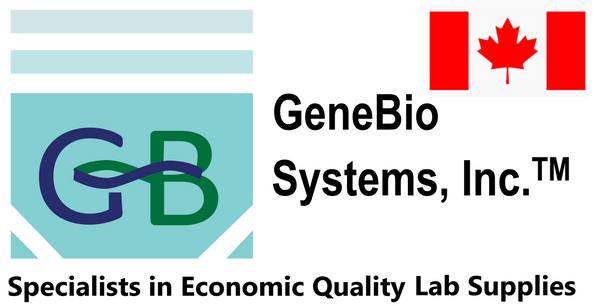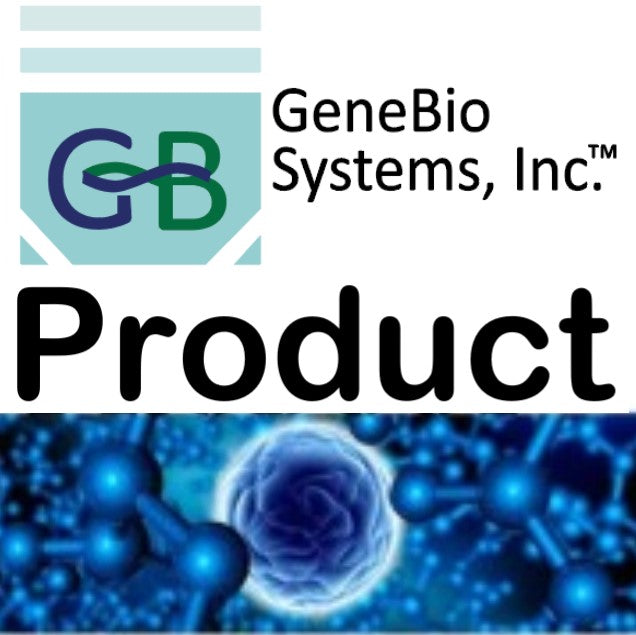Gene Bio Systems
Recombinant Human Tumor necrosis factor receptor superfamily member 6(FAS)
Recombinant Human Tumor necrosis factor receptor superfamily member 6(FAS)
SKU:CSB-CF008433HU(A4)
Couldn't load pickup availability
Size:20ug. Other sizes are also available. For further information, please contact us.
Research Areas:Cell Biology
Uniprot ID:P25445
Gene Names:FAS
Organism:Homo sapiens (Human)
AA Sequence:QVTDINSKGLELRKTVTTVETQNLEGLHHDGQFCHKPCPPGERKARDCTVNGDEPDCVPCQEGKEYTDKAHFSSKCRRCRLCDEGHGLEVEINCTRTQNTKCRCKPNFFCNSTVCEHCDPCTKCEHGIIKECTLTSNTKCKEEGSRSNLGWLCLLLLPIPLIVWVKRKEVQKTCRKHRKENQGSHESPTLNPETVAINLSDVDLSKYITTIAGVMTLSQVKGFVRKNGVNEAKIDEIKNDNVQDTAEQKVQLLRNWHQLHGKKEAYDTLIKDLKKANLCTLAEKIQTIILKDITSDSENSNFRNEIQSLV
Expression Region:26-335aa
Sequence Info:Full Length of Mature Protein
Source:in vitro E.coli expression system
Tag Info:N-terminal 10xHis-tagged
MW:40.6 kDa
Alternative Name(s):Apo-1 antigen (Apoptosis-mediating surface antigen FAS) (FASLG receptor) (CD_antigen: CD95 APT1) (FAS1) (TNFRSF6)
Relevance:Receptor for TNFSF6/FASLG. The adapter molecule FADD recruits caspase-8 to the activated receptor. The resulting death-inducing signaling complex (DISC) performs caspase-8 proteolytic activation which initiates the subsequent cascade of caspases (aspartate-specific cysteine proteases) mediating apoptosis. FAS-mediated apoptosis may have a role in the induction of peripheral tolerance, in the antigen-stimulated suicide of mature T-cells, or both. The secreted isoforms 2 to 6 block apoptosis (in vitro).
Reference:"The polypeptide encoded by the cDNA for human cell surface antigen Fas can mediate apoptosis." Itoh N., Yonehara S., Ishii A., Yonehara M., Mizushima S., Sameshima M., Hase A., Seto Y., Nagata S. Cell 66:233-243(1991)
Purity:Greater than 85% as determined by SDS-PAGE.
Form:Liquid or Lyophilized powder
Buffer:If the delivery form is liquid, the default storage buffer is Tris/PBS-based buffer, 5%-50% glycerol. If the delivery form is lyophilized powder, the buffer before lyophilization is Tris/PBS-based buffer, 6% Trehalose, pH 8.0.
Reconstitution:We recommend that this vial be briefly centrifuged prior to opening to bring the contents to the bottom. Please reconstitute protein in deionized sterile water to a concentration of 0.1-1.0 mg/mL.We recommend to add 5-50% of glycerol (final concentration) and aliquot for long-term storage at -20?/-80?. Our default final concentration of glycerol is 50%. Customers could use it as reference.
Storage:The shelf life is related to many factors, storage state, buffer ingredients, storage temperature and the stability of the protein itself. Generally, the shelf life of liquid form is 6 months at -20?/-80?. The shelf life of lyophilized form is 12 months at -20?/-80?.
Notes:Repeated freezing and thawing is not recommended. Store working aliquots at 4? for up to one week.
Function:Receptor for TNFSF6/FASLG. The adapter molecule FADD recruits caspase-8 to the activated receptor. The resulting death-inducing signaling complex (DISC) performs caspase-8 proteolytic activation which initiates the subsequent cascade of caspases (aspartate-specific cysteine proteases) mediating apoptosis. FAS-mediated apoptosis may have a role in the induction of peripheral tolerance, in the antigen-stimulated suicide of mature T-cells, or both. The secreted isoforms 2 to 6 block apoptosis (in vitro).
Involvement in disease:Autoimmune lymphoproliferative syndrome 1A (ALPS1A)
Subcellular Location:Isoform 1: Cell membrane, Single-pass type I membrane protein, SUBCELLULAR LOCATION: Isoform 2: Secreted, SUBCELLULAR LOCATION: Isoform 3: Secreted, SUBCELLULAR LOCATION: Isoform 4: Secreted, SUBCELLULAR LOCATION: Isoform 5: Secreted, SUBCELLULAR LOCATION: Isoform 6: Secreted
Protein Families:
Tissue Specificity:Isoform 1 and isoform 6 are expressed at equal levels in resting peripheral blood mononuclear cells. After activation there is an increase in isoform 1 and decrease in the levels of isoform 6.
Paythway:MAPKsignalingpathway
HGNC Database Link:https://www.genenames.org/cgi-bin/gene_symbol_report?hgnc_id=HGNC:11920
UniGene Database Link:https://www.ncbi.nlm.nih.gov/UniGene/clust.cgi?ORG=Hs&CID=244139
KEGG Database Link:https://www.genome.jp/dbget-bin/www_bget?hsa:355
STRING Database Link:https://string-db.org/network/9606.ENSP00000347979
OMIM Database Link:https://www.omim.org/entry/134637134637134637
Lead Time Guidance:18-23 business days


